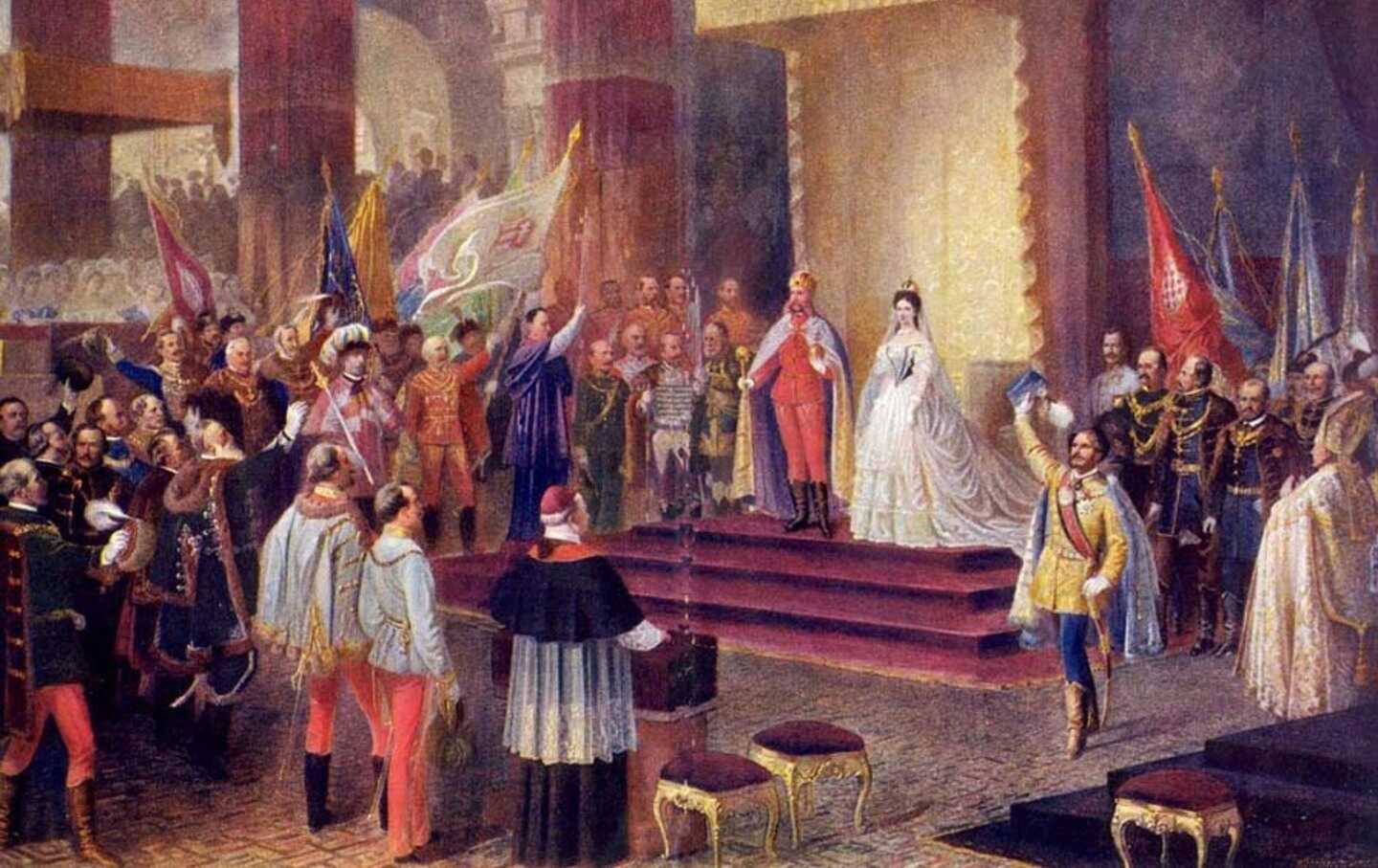The Habsburg Empire and the Modern State
On this episode of American Prestige, Natasha Wheatley on the transformation of the Habsburg Empire from a multinational collection of polities to discrete nation-states.

Here's where to find podcasts from The Nation. Political talk without the boring parts, featuring the writers, activists and artists who shape the news, from a progressive perspective.
On this episode of American Prestige, Natasha Wheatley, assistant professor of history at Princeton, sits down with our hosts, Danny and Derek, to talk about the transformation of the Habsburg Empire from a multinational collection of polities to discrete nation-states and how this century of radical change informs our ideas of sovereignty and the subsequent international order. The discussion explores the Austro-Hungarian Compromise of 1867, how the Empire navigated emerging nationalisms in the late 19th century compared with the Ottoman Empire, problems of post-Habsburg states after WWI and how they helped engender WWII, and more.
Grab a copy of Natasha’s book The Life and Death of States: Central Europe and the Transformation of Modern Sovereignty.
Advertising Inquiries: https://redcircle.com/brands
Privacy & Opt-Out: https://redcircle.com/privacy

Coronation of Emperor Franz Joseph and Empress Elisabeth of Austria as King and Queen of Hungary, on June 8th, 1867, in Buda, Capital of Hungary.
(Edmund Tull / Wikimedia Commons)On this episode of American Prestige, Natasha Wheatley, assistant professor of history at Princeton, sits down with us to talk about the transformation of the Habsburg Empire from a multinational collection of polities to discrete nation-states and how this century of radical change informs our ideas of sovereignty and the subsequent international order.
The discussion explores the Austro-Hungarian Compromise of 1867, how the empire navigated emerging nationalisms in the late 19th century compared with the Ottoman Empire, problems of post-Habsburg states after WWI and how they helped engender WWII, and more.
Grab a copy of Natasha’s book The Life and Death of States: Central Europe and the Transformation of Modern Sovereignty.

Here's where to find podcasts from The Nation. Political talk without the boring parts, featuring the writers, activists and artists who shape the news, from a progressive perspective.
On this episode of American Prestige, William Hartung — senior research fellow focusing on the arms industry and US military budget at the Quincy Institute for Responsible Statecraft — joins the program to discuss reports that the Trump administration is planning “sweeping budget cuts” for the Pentagon. We talk about these “cuts” being more accurately termed “reinvestments” into other areas, the enormous amount of defense spending and the culture that engendered this, how the defense industry has changed in the past 20 years, actual moves that could meaningfully reduce the military budget like reducing bloated systems (F-35s, aircraft carriers) and overseas bases, whether there exists an influential constituency to support military budget cuts, and more.
Advertising Inquiries: https://redcircle.com/brands
Privacy & Opt-Out: https://redcircle.com/privacy
